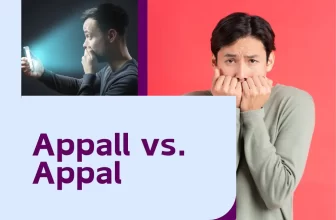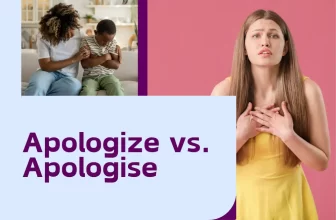Aging or Ageing: Spelling Differences Across the Pond
Have you ever wondered if there’s a real difference between the words “aging” and “ageing”?
You might have noticed them used interchangeably, and for the most part, you’d be right. However, there’s a subtle geographical twist to this story.
The American vs. British Approach
The main distinction between “aging” and “ageing” lies in regional spelling preferences. In American English, “aging” is the standard spelling.
On the other hand, British English, along with countries like Australia and New Zealand, generally favor the “ageing” spelling.
It’s a classic example of minor variations that exist within the broader English language.
What Does “Aging” (or “Ageing”) Mean?
Whether you write “aging” or “ageing,” you’re describing the fundamental process of growing older and the changes that come along with the passage of time.
This applies to living beings, like people and animals, as their bodies undergo natural biological shifts.
The concept also extends to objects, which might deteriorate, gain patina, or simply change in value over the years.
Think of fine wines that “age” gracefully, vintage cars whose worth fluctuates, or even old buildings whose structures are marked by time.
Ultimately, both “aging” and “ageing” encompass the universal journey of transformation that comes with the passage of time.
Examples of Usage
Here are some common ways these words come up in daily conversations and writing:
- The aging population: This phrase highlights the increasing proportion of older adults in society.
- Anti-aging products: The beauty industry is filled with creams and serums claiming to fight the signs of aging.
- The ageing process: This refers to the natural biological changes that occur as we get older.
- Ageing wine: Some wines improve in flavor as they age over time.
When to Use Which Spelling
The golden rule is to know your audience. Here’s the simple breakdown:
- Writing for Americans: Stick with “aging” across the board.
- Writing for British (or other British English-influenced) audiences: Opt for “ageing” to be consistent with their regional standards.
- Writing for a mixed or international audience: You have a bit more flexibility. You could choose one form and use it consistently, or consider the majority of your audience and their preferences.
Is One Form Wrong?
Absolutely not! Both “aging” and “ageing” hold equal validity and are widely understood. The difference boils down to nothing more than regional spelling customs, rather than any grammatical error.
Think about it like the words “color” and “colour” – both are correct, just dependent on where you’re writing. This holds true for the “aging” and “ageing” pair.
The Bottom Line
Don’t overthink the “aging” vs. “ageing” dilemma. Above all else, prioritize the clear communication of your ideas.
Understanding the simple regional preferences behind these spellings empowers you to adapt your writing to suit your audience.
Whether you’re diving into discussions about demographics or the latest anti-aging trends, focus on clarity, and the spelling will naturally fall into place.






